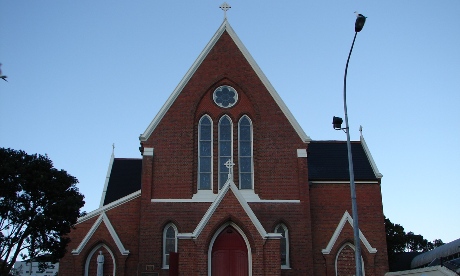St Benedict’s parish in Newton faces a bill of up to $8 million to bring their Auckland landmark church up to proposed earthquake strengthening standards.
That’s after already spending about $2million ten years ago to restore the structure that was built in 1888.
That restoration brought the church up to 33 per cent of the New Building Standard, just short of the 34 per cent required by the Earthquake-prone Buildings Amendment Bill that could become law this year.
Critics have panned the widespread net cast by the bill.
Building and Construction Minister Nick Smith told the Weekend Herald that he has asked officials to come up with a compromise plan that would cut costs, limit work to those buildings that needed it most and still have the legislation ready to be introduced by the end of the year if National was re-elected.
St Benedict’s finance committee chairman Richard Hurley said it would cost at least $3 million to meet the standard and up to $8 million to do it well for their church.
The parish is not poor, but could not possibly afford that, he told the New Zealand Herald.
The church is one of about 30 out of 50 church-owned buildings surveyed by the Auckland Catholic diocese, which would be classified as earthquake-prone under the bill.
Auckland diocese administration board member Paddy Luxford, who is a geotechnical engineer, said the Church accepted that some buildings would have to be upgraded, but it would struggle to find the money for many others.
“We cannot afford to upgrade these, so we’ll have to vacate them,” he said.
“If they’re historical, as I understand it, we might not be able to demolish them so they might end up becoming derelict.”
Early estimates suggested at least half of all church buildings in New Zealand could be classed as earthquake-prone under the bill.
The bill, which has passed its first reading, as currently worded sets a national time frame of 20 years for buildings to be strengthened or demolished.
It requires territorial authorities to assess buildings within five years and for work to be completed, or buildings to be demolished, within 15 years of assessment.
Owners of category one historic places may apply for an extension of up to 10 years.
Sources
Additional readingNews category: New Zealand.




